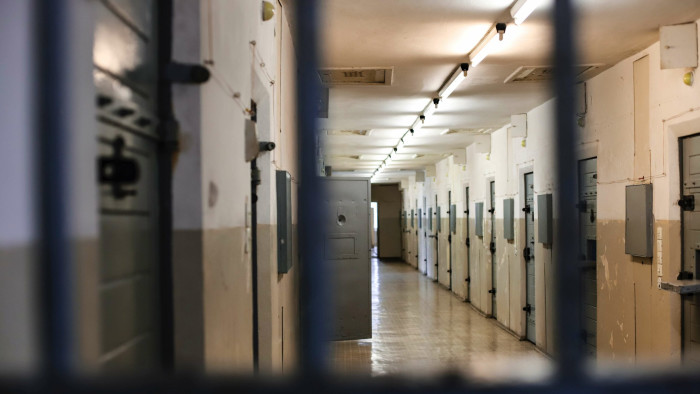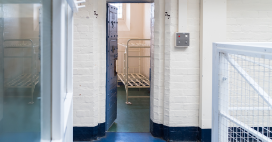
One in ten of the remand population in England and Wales have been in prison for more than a year
- FOI request by Fair Trials reveals shocking impact of court delays on people who have been accused of a crime but not yet tried
- Thousands of people are being held in prison awaiting trial for longer than the legal custody time limit, including 1500 people held in prison for longer than a year and almost 500 people held for more than two years
- Current backlog of court delays stands at more than 60,000
One in ten people who are on remand in England and Wales have been in prison for over a year, and thousands have been held beyond the time limit of six months set down in law. Data released by the Ministry of Justice to Fair Trials following freedom of information requests, has revealed that as of 30 June 2021:
- 1,523 people have been held in prisons awaiting trial for more than a year, which accounts for 10% of the entire remand population in England and Wales.1
- 475 people have been held for more than two years without trial. The custody time limit under UK law, which stipulates how long people can be held in custody before they must be tried, is six months.
- Overall, 3,949 people have been held in prison awaiting trial and sentencing for more than the 6 month custody time limit. This is a 10% rise since December 2020.2
Griff Ferris, Fair Trials Legal and Policy Officer said:
“Any system which holds people in prison without trial for years is a cruel, broken system. Some of these people are now facing a second Christmas behind bars without the opportunity to prove their innocence. Others have been waiting for a trial since before the start of the coronavirus pandemic last March, and even since 2019.”
“These unacceptable delays undermine our entire justice system, denying justice for both defendants and victims. The Government needs to take urgent action to implement structural solutions to this crisis, including releasing people from remand, rather than trying to find ways to put more people into prison.”
Inhumane remand conditions during COVID-19
People held on remand since March 2020 have been subjected to conditions akin to solitary confinement, branded inhumane, including being kept in cells for 23 and a half hours a day and sometimes days at a time, with showers and exercise allowed only intermittently. Contact with friends, families and others has been restricted to monthly video-calls, with many unable to speak to their loved ones at all.
Many people who are held on remand will walk free after trial. In 2020, one in ten of all those remanded were acquitted at trial, and one in four of those remanded in custody in 2020 were not sent to prison following their trial.3 Those remanded in custody awaiting trial are disproportionately Black, Asian and from other minoritised ethnic groups.4
Fair Trials recently published report, Locked up in Lockdown: life on remand during the pandemic, contained first-hand accounts from people held on remand over the last year, detailing how extreme the conditions have been:
“We have been treated like animals for over a year now. We get 30 minutes of walking outside and spend the rest of the time locked up.” Dom*
“My kids have not seen me in person in over 1 year and I can’t tell them when I ll be able to see them let alone hug them.” -Keeley*
“The impact has been exhausting (…) not knowing what is going on has affected my mental health immensely and is getting worse (…) I have even self-harmed, had no help from mental health, no counselling can be facilitated, and still have no clue as to when [my trial] will be…” Stuart*
Court delays in England and Wales
Trial delays have played a significant role in people being held on remand for excessive periods, with the current backlog now standing at more than 60,000 cases.5 The vast majority, almost 40,000, existed before the pandemic, after the government closed half the courts across England and Wales and sold a third between 2010 and 2020,6 and cut funding to other key areas, including legal aid.7
People who wrote to Fair Trials spoke of repeated delays to their cases:
“My trial date [was] supposed to be August 2020 but due to [the] pandemic they moved to October then they moved to November then February 2021 and now waiting for 12 April [2021]. I hope this goes through.” Farhan*
People also spoke to Fair Trials about pleading guilty to crimes they haven’t committed in order to get out of remand:
“I feel remand is used as a tool to increase conviction rate as most people get to the time served part and change plea just to get out of this hellhole.” Winston*


